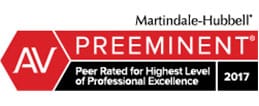Our attorneys understand that not every case needs to be resolved in court. Clients, lawyers and even judges often use mediation and arbitration because it is faster, less expensive and less stressful for those involved. These options can be used on their own. However, they are often used alongside litigated issues to resolve parts where the two sides are close to an agreement, leaving fewer issues to be resolved in court.
While these methods of alternative dispute resolution (ADR) have become increasingly common, Anderson, Johnson, Lawrence & Butler, L.L.P., was at the leading edge of mediation as Cumberland County was one of the first counties where mediation was required in all Superior Court cases. Our attorneys are routinely called upon by the courts and hired privately to handle arbitration. We believe that our long-standing experience with ADR and in the legal community gives us unique insights into assessing and handling arbitration
How Does Mediation Work?
This is a nonbinding format where the two sides try to work constructively to find common ground with help from a mediator. It can feature a single attorney who plays an impartial role as mediator, or it can also include additional attorneys on each side. Anything discussed during this process is confidential and will generally not be admissible in future litigation.
What Is Arbitration?
Also more streamlined than a jury trial arbitration nonetheless takes many forms. It is similar to standard litigation because both parties provide testimony, evidence and arguments to a neutral third party or panel of experts who are agreed upon early in the process. If the parties agree to binding arbitration, the decision is final and hard to appeal.
Other Benefits To ADR
Along with being less expensive, less stressful and quicker, there are other benefits to consider:
- The process is less likely to alienate the two parties, which is important to consider if they are business partners or likely to work together in the future.
- While court documents are available to the public unless they are sealed, these alternatives keep all information confidential.
- Judges know the law, but the third party or panel may include experts on the subject matter in dispute.
Not Sure If ADR Is Right For You? Contact Us.
We serve individuals and companies in Fayetteville and throughout North Carolina. Call 910-483-1171 to schedule an initial consultation with an attorney. You can also reach us through our Contact page.



